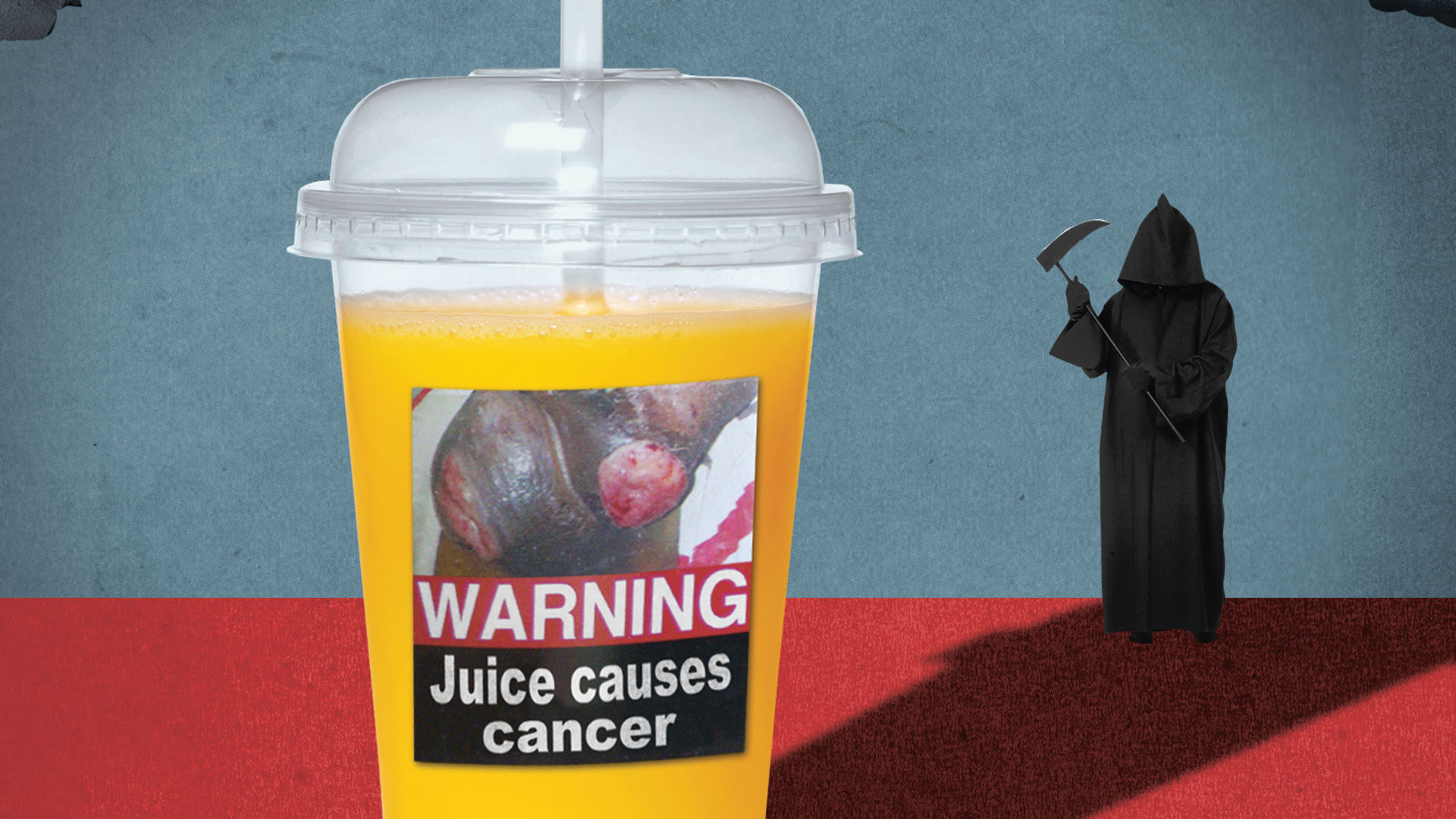Other headlines differed on the degrees of certainty with which they reported the link between sugary fruit juice drinks and cancer.
The BBC and the Daily Express both asked the question of whether the drinks – soft drinks in the latter’s case – increase the risk of developing cancer.
The Daily Mirror reported with certainty that “Drinking sugary drinks including fruit juice increases risk of cancer” while both The Independent and The Guardian softened their stance, instead linking the two without saying that there is a definite causal link.
But which of these stories should you be drinking in and which deserve pouring away?
Facts. Checked
So while the reporting of this study is mostly accurate, it is still too early to definitely say that fruit juice definitely causes cancer.
The story comes from a study published in the British Medical Journal that asked 101,257 people over the age of 18 from the French NutriNet-Santé cohort about their consumptions of sugary drinks and artificially sweetened beverages using repeated 24-hour dietary records.
The results show that a 100ml per day increase in the consumption of sugary drinks was associated with an 18 per cent increased risk of overall cancer and a 22 per cent increased risk of breast cancer. When the group of sugary drinks was split into fruit juices and other sugary drinks, the consumption of both beverage types was associated with a higher risk of overall cancer.
The press release given to publications along with the study stressed “cautious interpretation is needed” and referred to the research as “a possible association” and warned that “these results need replication in other large-scale studies” to be confirmed. This was not reflected in all the headlines and underlines the need to read further in this case.
The Guardian’s report was strong in this aspect. It canvassed the thoughts of other academics who largely echoed the need for reducing sugar in the diet with the caveat that more work is to be done.
There were warnings against knee-jerk reactions from The Sun too, with a separate article from addiction specialist Dr Robert Lefever. He pointed out that it is still not definitely clear that the rise in cancers from this study was down to sugar intake or an increase in body weight.
Journalist Angela Dowden also wrote on the American Council on Science and Health’s website that the study is useful but not yet conclusive, and stressed that the risk would lead to four extra cases of cancer per every 1,000 people over a five-year period.
So as Boris Johnson promises to potentially review the sugar tax that was introduced last year, this study may make interesting reading. But it is only further experimentation that will determine a firmer link between cancer and fruit juices.
Until then, that morning glass of fruit juice is fine, but keep it to that to avoid other health problems like diabetes or tooth decay.
Illustration: Miles Cole










